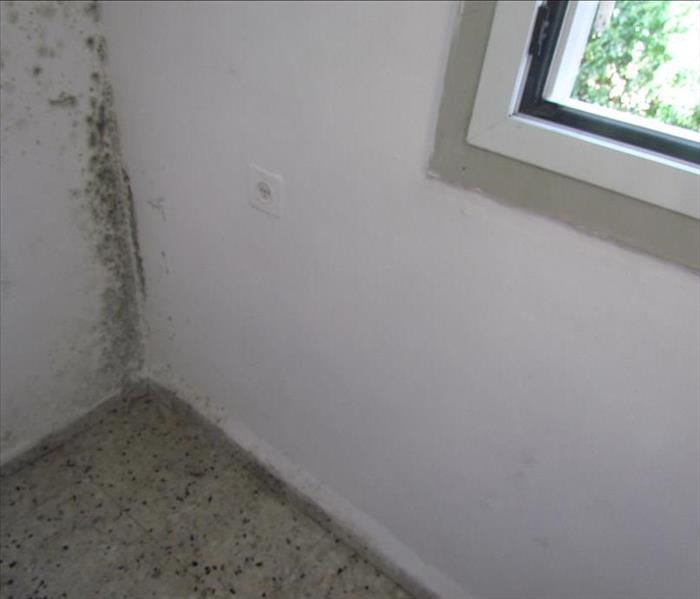What you should know about mold after a storm
8/5/2020 (Permalink)
Hurricane season is most definitely upon us! The 2020 Atlantic hurricane season is the first on record in which nine tropical storms formed before August 1st. As most of you living in NYC know, Tropical Storm Isaias blew through the streets of the city on Tuesday afternoon with fast winds and heavy rain. New York City’s power utility said it saw more outages from Isaias than from any storm except Superstorm Sandy in 2012. Isaias closed bridges, halted commuter trains and sent thousands of trees limbs crashing down on homes, cars and streets of New York.
The SERVPRO midtown Manhattan crew was dispersed throughout the city cleaning up the immediate aftermath of the storm. Responding instantly to a storm of any speed or magnitude is our specialty, however we also pride ourselves in handling the residual damage caused by a storm that may not be so visible, a fungus known as mold.
After a natural disaster such as a tropical storm or hurricane that causes flooding or standing water, tons of excess moisture can contribute to the growth of mold. Mold can grow in homes and buildings and can produce allergens and irritants. Mold can develop within a little as 24-48 hours after water exposure and what’s worse is that it will continue to grow until steps are taken to stop it. If your home or building has been flooded, or has been exposed to excessive moisture after the storm you may be at risk for mold, even if you have since dried the area.
We do not recommend that you dry the area yourself. Water damage mitigation if not done properly can create mold growth after a storm. It can create a constant mold problems if property is not dried out completely and there is a high change it will begin to grow on material such as drywall, studs, carpeting and insulation, which can be extremely costly to replace once it is damaged. We do not recommend you try and remove the mold yourself with bleach or any other disinfectants. Our SERVPRO professionals use anti-fugal and antimicrobial treatments to eliminate mold colonies to help prevent new colonies from forming. We at SERVPRO midtown do mold testing and safe mold remediation. You can call us at SERVPRO for immediate service 212-768-9400.
What you should know about mold. Mold can enter though heating and air conditioning systems. It can enter though vents, widows and open doorways. It can also attach itself to shoes and clothing and be carried indoors. When mold spores drop on a place with excessive moisture where leakage might have occurred the mold with then grow.
Usually mold can be seen or smelled, mold often produced a strong, musty oder. During SERVPRO’s inspection and mold damage assessment various technologies will be used to detect mold and hidden water sources.
We at SERVPRO are at your service at a moments notice when it comes to water damage or flooding after a storm. However mold can infest your home in a more subtle, insidious way. Here are some helpful tips on how to keep mold from entering your home and preventing it from spreading throughout.
- Make sure your roof gutters and roof are cleaned frequently
- Check under potted indoor plants to make sure water does not accumulate
- Remove or replace wet carpets or rugs that are not drying properly
- Increase ventilation and air flow as often as possible especially when showering, cooking, using the dishwasher or clothes dryer
- Use de-humidifiers and fans to help remove excess moister and condensation
- Whenever there is a spill or leak, clean it up immediately
If you do detect mold in your home or building SERVPRO midtown is here for you. Call us anytime at 212-768-9400. We provide a 24/7 emergency service with highly trained specialists who will come to inspect and assess right away. STAY SAFE!






 24/7 Emergency Service
24/7 Emergency Service
